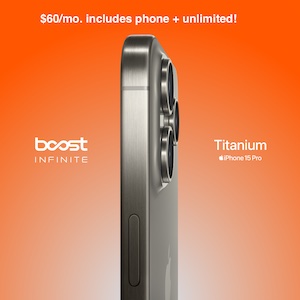Apple’s Mac Problem – Retina Anticipation, Stand-Pat Feature Sets, And Good Tablets
TechCrunch’s John Biggs commenting on Apple’s Mac sales being down 21% year-over-year and 16% for the quarter observes that while 4.1 million Macs sold in Q1 2013 is nothing to sneeze at (especially in the current snake-bit PC market), it’s still nearly a quarter year-over-year loss.
Biggs deduces that Apple’s primary Mac problem right now is a dichotomy between Retina devices – ergo: the MacBook Pro with Retina Display – and the rest of the Mac line, plus the fact that die-hards wont buy desktop Macs because the new Mac Pros havent been announced and potential iMac buyers were hoping for Retina screens. Laptop fans are better off with a range of Retina and non-Retina alternatives still available but other innovations such as touchscreens and convertibles are still unavailable.
In short, the current Mac line-up is bifurcated. On one hand you can lay out a few thousand for a laptop with a beautiful screen and on the other hand you lay out a few thousand for monitor with lower resolution. There is no clear escape here, and so customers aren’t buying.
Biggs doesn’t believe slow-uptake Windows 8 has much to do with the Mac sales decline, but thinks Apple’s own tablet line-up does, with many casual users evidently seeing a tablet to be as good as a laptop for their purposes. Ergo, by building such solid mobile devices, Apple could be cannibalizing its own Mac sales, an the only thing that might change that would be some real laptop innovation.
(Or even catch-up with the PC Ultrabook feature sets. CM.)
Why Are Mac Sales Plummeting? Apple Gave Up On Innovating
DigitalTrends’ Jeffery Van Camp says that while Tim Cook has plenty of excuses for the alarming 21 percent decline in Mac sales last quarter, ultimately, it’s Apples stagnant computing product line that’s to blame.
Apple sold 1.1 million fewer Macs than it did last year (4.1 million compared to 5.2 million in 2011).
Van Camp observes that just about every laptop on the market today has many of the design trademarks of Apple’s MacBook line: island-style keyboards, aluminum frames, clean lines, and so forth with Intel liking the MacBook Air line so much that it spent hundreds of millions creating the Ultrabook, which began as the Windows 7 equivalent of the Air: super thin, fast-booting, and sleek, while desktop PCs have basically disappeared in favor of All-in-One computers that ape the iMac.
So why has Apple’s Mac business suddenly dropped by more than 21 percent while Windows PC sales during the last three months of 2012 only fell by about 5 percent.
Van Camp notes that most new Windows 8 laptops have a touchscreen, and many have other fancy features like the ability to convert into a tablet (eg: Lenovo Yoga),are all thin, light, and many of them are well designed. Except for the Retina display MacBook Pros and periodic speed bumps, Apple has been standng pat.
Apple did sell 47.8 million iPhones and 22.9 million iPads in Q1/13, and Mr. Cook professes to be unworried about iPads cannibalizing MacBook sales, but Van Camo notes that unless Apple plans to abandon the Mac altogether, it might do well to start worrying.
Apple Doesn’t Care That iPads Are Cannibalizing Sales Of Macs
Quartz’s Christopher Mims notes that Apple’s fiscal Q1/13 results show Mac sales are down 21% year-over-year, a much steeper decline that the 6% for overall global PC shipments, but Apple CEO Tim Cook, while observing that some of the weakness in Mac sales is due to the success of the iPad, espressed serenity, even calling this cannibalization a huge opportunity for Apple, and echoing the late Steve Jobs’ assertion that someday PCs will be like trucks, needed by only some people, and only for heavy-duty tasks.
(But some of us like trucks, and PCs, although it’s nice to have tablets too. CM.)
